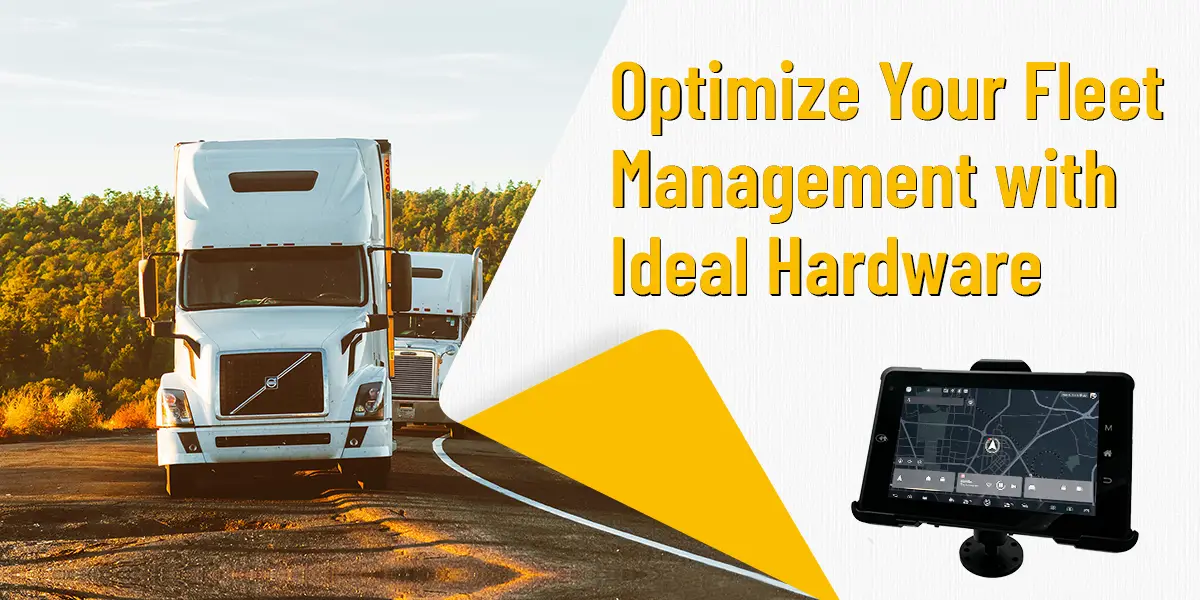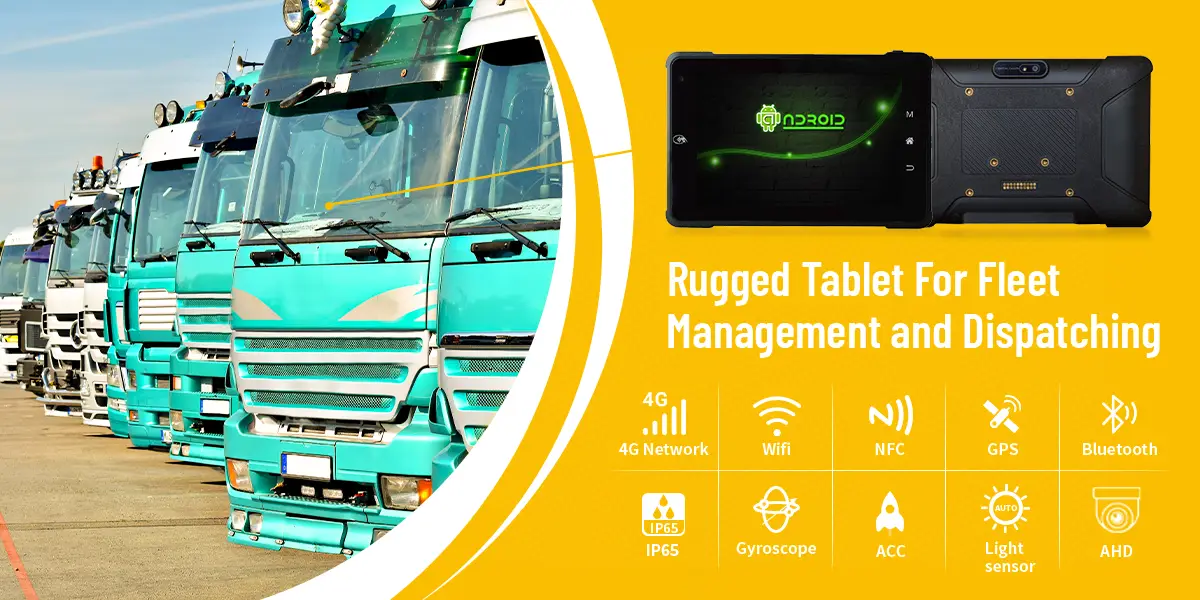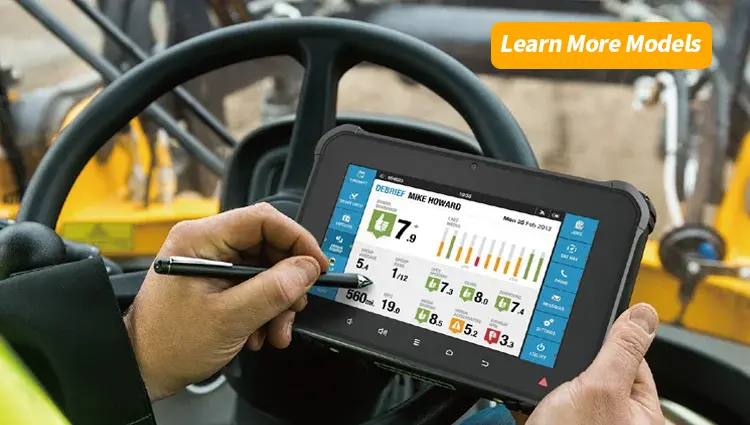Rugged Tablets vs Traditional Fleet Tools: The Ultimate Guide
Managing a fleet has always been a tough job. Whether you’re handling trucks, buses, or taxis, ensuring that each vehicle runs smoothly, stays on schedule, and remains in compliance with regulations is critical. Traditionally, fleet managers have relied on various tools like paper logs, GPS devices, and onboard computers. But with the rise of rugged tablets, many are starting to ask: are these more advanced devices the better solution?

Why Compare Rugged Tablets and Traditional Tools?
Fleet management technology has evolved rapidly in recent years. Rugged tablets have entered the market as a versatile, all-in-one tool that promises to simplify the job. However, many companies still rely on traditional tools. This comparison aims to break down the pros and cons of both, helping fleet managers make informed decisions.
What Are Rugged Tablets?
Rugged tablets are specialized tablets designed for tough environments. These are not your average consumer tablets; they are built to withstand extreme conditions like dust, water, drops, and vibrations. Imagine the resilience of military gear combined with the functionality of a high-tech gadget—this is the rugged tablet in a nutshell.
Rugged tablets are specifically designed to meet the needs of industries like trucking, construction, and field services, where traditional devices just don’t cut it.
What Are Traditional Fleet Management Tools?
Traditional tools for fleet management include a range of devices and systems that help managers monitor and maintain their fleets. These tools can be anything from GPS tracking units to paper-based logs and checklists, onboard computers, and standalone navigation systems.
Rugged Tablets: An Overview
Rugged tablets have become increasingly popular in fleet management due to their all-in-one capabilities. They come equipped with GPS, cameras, Wi-Fi, and specialized software for real-time data tracking.
They not only allow managers to monitor routes, fuel consumption, and vehicle health but also provide drivers with instant access to work orders, maintenance checklists, and navigation. This level of integration streamlines operations in ways traditional tools cannot.
Traditional Fleet Management Tools: A Breakdown
Traditional tools, while reliable, often consist of multiple components. For example:
- GPS devices: Offer basic navigation and route tracking.
- Onboard computers: Used to monitor engine performance.
- Paper logs: For tracking hours and mileage manually.
Though these tools have served well for years, they lack the integration and real-time capabilities that rugged tablets offer.
Key Features of Rugged Tablets
- Durability: Built for harsh conditions.
- Connectivity: Seamlessly connects to Wi-Fi, Bluetooth, and cellular networks.
- All-in-One Functionality: Combines GPS, data collection, communication, and more.
- Real-Time Data: Instantly updates managers and drivers with current information.
How Traditional Tools Operate
Traditional fleet management tools require multiple devices working independently. GPS for navigation, separate software for route optimization, and manual processes for fuel consumption tracking. While these tools have been effective in the past, they are labor-intensive and prone to errors due to their fragmented nature.
Durability: Rugged Tablets vs Traditional Tools
When it comes to durability, rugged tablets are built to last. They’re designed to survive drops, extreme weather, and tough working conditions. Traditional tools, on the other hand, such as GPS units or paper logs, tend to wear out quickly or become damaged.
Mobility and Flexibility: Rugged Tablets vs Traditional Tools
Rugged tablets provide superior mobility. They can be taken anywhere—whether it’s inside a truck cabin, into a repair garage, or out in the field. Traditional tools are often stationary or require separate, cumbersome devices.
Cost Analysis: Which is More Economical?
While the upfront cost of rugged tablets may seem high, they can save money in the long run by consolidating multiple tools into one device. Traditional tools may appear cheaper but require ongoing maintenance, updates, and replacements.
Software Capabilities: The Power of Integration
Rugged tablets offer powerful software that integrates various functions into a single interface. This means drivers and fleet managers can track everything from vehicle performance to driver behavior in real time, without switching between systems. Traditional tools lack this integration, often requiring manual data input and reconciliation between systems.
Ease of Use: User Experience Comparison
Rugged tablets are designed with user experience in mind. Their touchscreens are intuitive, and they often feature user-friendly apps. Traditional tools, on the other hand, can be more complex and harder to train drivers and fleet managers on.
Maintenance and Repair
Maintaining rugged tablets is often easier than traditional tools. Updates are performed remotely, and since the devices are built for rough environments, they require less frequent repairs. Traditional tools often need more hands-on maintenance, especially with mechanical wear and tear.
Connectivity: Rugged Tablets in a Connected World
With 4G/5G and Wi-Fi capabilities, rugged tablets ensure that both drivers and managers can stay connected at all times. Traditional tools may rely on satellite GPS or disconnected onboard systems, which can be limiting in areas with poor signal.

Data Collection and Reporting
Rugged tablets can automatically collect and report data, providing fleet managers with real-time insights. Traditional tools often require manual data collection, which increases the chance of errors and delays.
Safety Features: How Both Compare
Rugged tablets come with safety features like driver fatigue alerts, maintenance reminders, and more. Traditional tools lack these proactive capabilities, focusing more on reactive measures.
Adaptability in Harsh Conditions
Rugged tablets are made to thrive in environments where traditional tools would fail. Whether it’s dust, rain, or intense heat, rugged tablets keep going. Traditional tools can break down in such conditions, requiring replacements or repairs.
Battery Life: Rugged Tablets vs Traditional Devices
Rugged tablets are designed to last all day, even with constant use. Traditional tools, particularly handheld GPS units or onboard systems, may need frequent charging or battery replacement.
Case Studies: Success with Rugged Tablets
Many companies have successfully transitioned from traditional tools to rugged tablets, seeing improvements in efficiency, accuracy, and cost savings. For instance, trucking companies have reported fewer breakdowns and delays due to better real-time monitoring of vehicle health.
Environmental Impact of Rugged Tablets vs Traditional Tools
Rugged tablets have a lower environmental impact in the long term due to their durability and ability to replace multiple devices. Traditional tools often require frequent replacements, leading to more waste.
Conclusion: Which Should You Choose for Your Fleet?
When it comes to choosing between rugged tablets and traditional fleet management tools, rugged tablets emerge as the clear winner. They offer better durability, flexibility, and integration of features, all of which contribute to more efficient fleet management. While traditional tools may still have their place in smaller or less tech-savvy operations, the future clearly belongs to rugged tablets.
FAQs
- Are rugged tablets waterproof? Yes, most rugged tablets are designed to be waterproof, dustproof, and resistant to extreme temperatures.
- Can rugged tablets be used for route optimization? Absolutely! Rugged tablets come equipped with GPS and fleet management software that allows for real-time route optimization.
- How do rugged tablets save money over time? They consolidate multiple devices into one, reducing the need for separate tools and lowering maintenance costs.
- Can traditional tools integrate with modern fleet management software? Some traditional tools can, but integration is often limited compared to the seamless experience provided by rugged tablets.
- Is the transition to rugged tablets difficult? With proper training, the transition can be smooth. Many companies find that rugged tablets are easier to use than they initially expected.








